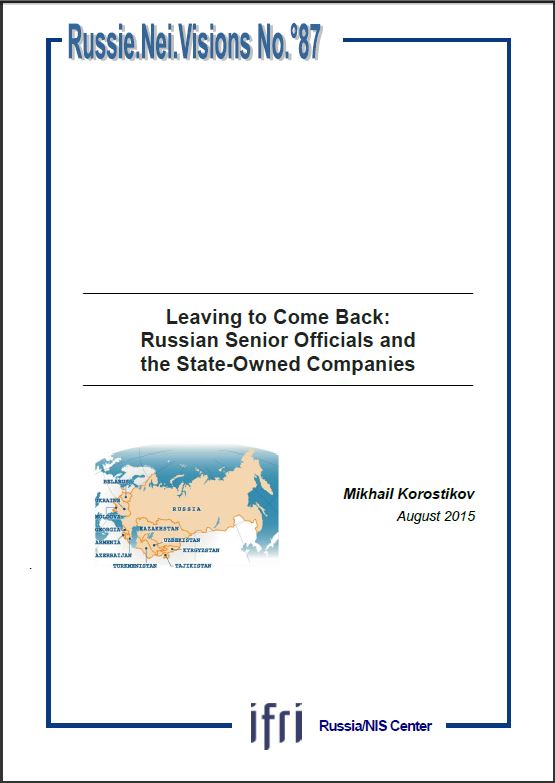Leaving to Come Back: Russian Senior Officials and the State-Owned Companies

When Dmitry Medvedev announced in late 2014 that the presence of ministers and other officials should be sharply increased on the boards of public companies, observers were surprised, considering that four years before the former President started a campaign to remove them from the very same structures.
This change of trend is symbolic and finally closes the debate about state ownership management in Russia. In the crisis context in early 2014, the Kremlin decided to make a bet on mobilizing all resources under its control by sacrificing the program aimed at increasing the transparency and openness of management of Russia's state companies. The result of this has been the gradual replacement of independent businessmen on the supervisory boards of state-owned companies with government officials—both members of “Putin’s clan” and the chiefs of other sectors of government-owned industries.
Download the full analysis
This page contains only a summary of our work. If you would like to have access to all the information from our research on the subject, you can download the full version in PDF format.
Leaving to Come Back: Russian Senior Officials and the State-Owned Companies
Related centers and programs
Discover our other research centers and programsFind out more
Discover all our analysesThe Caspian Sea as an Emerging Energy Hub : Potentials and Limitations
This report analyzes the prospects of the Caspian Sea region — and its key actors except for Russia and Iran — becoming an important energy hub serving the needs of the European Union (EU).
The European Union's Strategic Test in Georgia
The political crisis brewing in Georgia is of an existential nature for the country. What is at stake is Georgia's future as a democratic and sovereign European nation (EU).
Commanders of Putin's Long War: Purged, Reshuffled and Disgruntled
The trend of reshuffling the Russian top military command in the course of a fast-evolving and far from successful war has progressed unevenly both across the Armed Forces’ structures and in time. The rationale for and timing of the abrupt cadre decisions made by Commander-in-Chief Putin often defy logical explanation, and the rare official clarifications are no more informative than the usual information blackout.
Russian Military Manpower After Two and a Half Years of War in Ukraine
In addition to a military victory in Ukraine, the Russian leadership is planning to build up sizable troop formations for a possible conflict with NATO in the Baltic region and the Kola Peninsula. In particular, current plans aim for the military manpower to grow by about 350,000, reaching a total of 1.5 million soldiers and commanders. In the context of the current conflict in Ukraine, this cannot be accomplished without a new wave of mass mobilization.









